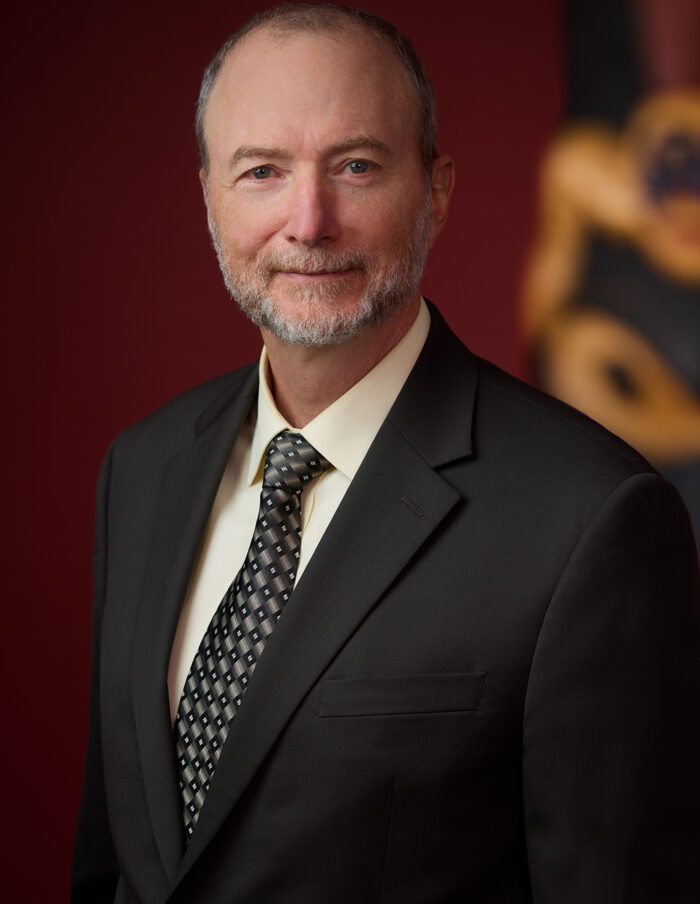Professional Profile

Edmund Clay Goodman
Partner- Portland, OR
- Tel: 503.242.1745
- Fax: 503.242.1072
- Email: egoodman@hobbsstraus.com
Ed Clay Goodman began his work for Indian Country nearly 40 years ago, with graduate-school volunteer work on Native land-rights protection. Moved by the commitment of tribal leaders and their causes, Ed entered law school to assist Native communities, and has dedicated his entire legal career to that effort. He began practicing law in 1989 and served as a staff attorney, and later as director of litigation, for the Native American Program of Oregon Legal Services. Ed joined Hobbs Straus in 2001 and became partner in 2003. In December 2011 he was named the first “Lawyer of the Year” by the National American Indian Housing Council (NAIHC), a national organization with 271 members representing 463 tribes and housing organizations across the United States. He was again named “Lawyer of the Year” by NAIHC in 2020, the only lawyer to be recognized twice for that honor.
Ed’s practice focuses on four key areas: (1) housing issues in Indian Country; (2) tribal water rights; (3) tribal gaming regulation; and (4) tribal jurisdiction and sovereign immunity.
Ed’s housing work includes matters under the Native American Housing and Self-Determination Act (NAHASDA), landlord-tenant issues, policy development, procurement and contracting, regulatory compliance, and personnel and administrative matters. He represents tribal housing departments and Tribally Designated Housing Entities (TDHEs), and participated in several rounds of negotiated rule-making for the NAHASDA. Ed helped tribes and TDHEs address methamphetamine use and manufacturing on their properties. He has drafted language incorporated into amendments to NAHASDA.
Ed’s water law work involves representing tribes in negotiations, administrative contested cases, and litigation to assert and to protect their water rights. Ed has advised clients on treaty rights protection and water marketing.
Ed’s gaming regulation work involves representing a number of Tribal Gaming Regulatory Agencies, and includes advice and counsel on MICS, Class III Compact Negotiations, licensing and license revocation, developing rules and regulations, and assisting with drafting or amending Tribal Gaming Ordinances.
Ed’s jurisdiction and sovereign immunity work covers a number of areas including: tribal gaming regulation, natural resources and environmental law, tribal court development, and the Indian Child Welfare Act (ICWA).
Ed has litigated on behalf of tribes in state, federal and tribal courts, as well as in various administrative forums. He successfully litigated a number of cases, including: State ex. rel. Juvenile Dept. v. Shuey, establishing tribal rights of self-representation in ICWA cases; Klamath Tribes v. United States of America, protecting fish and game habitat as part of tribal treaty rights to hunt and fish; Long v. Snoqualmie Gaming Commission, protecting the sovereign immunity of a tribal agency. Ed helped draft constitutions, ordinances, by-laws, and administrative regulations for tribal governments. He also assisted two restored Oregon tribes in re-establishing their tribal court systems and exercising jurisdiction over tribal lands.
Ed served as an adjunct professor at the Northwestern School of Law of Lewis & Clark College. He served for many years as a Tribal Court judge for two Oregon tribes. He has written several articles on Indian law. He enjoys books on science, politics and history, playing guitar, and kayaking and hiking with his family.
Professional Organizations
Founding Member and Former Chair, Indian Law Section, Oregon State Bar
Board of Directors, Legal Aid Services of Oregon
Board of Directors, Oregon Law Center
Education
Harvard Law School, J.D. (magna cum laude), 1989
University of Maryland, M.A, 1986
State University of New York at Albany, B.A. (with honors), 1982
Bar Admissions
Oregon
Washington,
Idaho
U.S. District Court, Oregon
U.S. District Court, W.D. Washington
U.S. District Court, E.D. Washington
U.S. District Court, Idaho
United States 5th Circuit Court of Appeals
United States 9th Circuit Court of Appeals
United States Supreme Court
Numerous Tribal Courts
Practice Concentration:
Tribal Affairs
Programs & Services
Indian Housing
Gaming
Natural Resources




